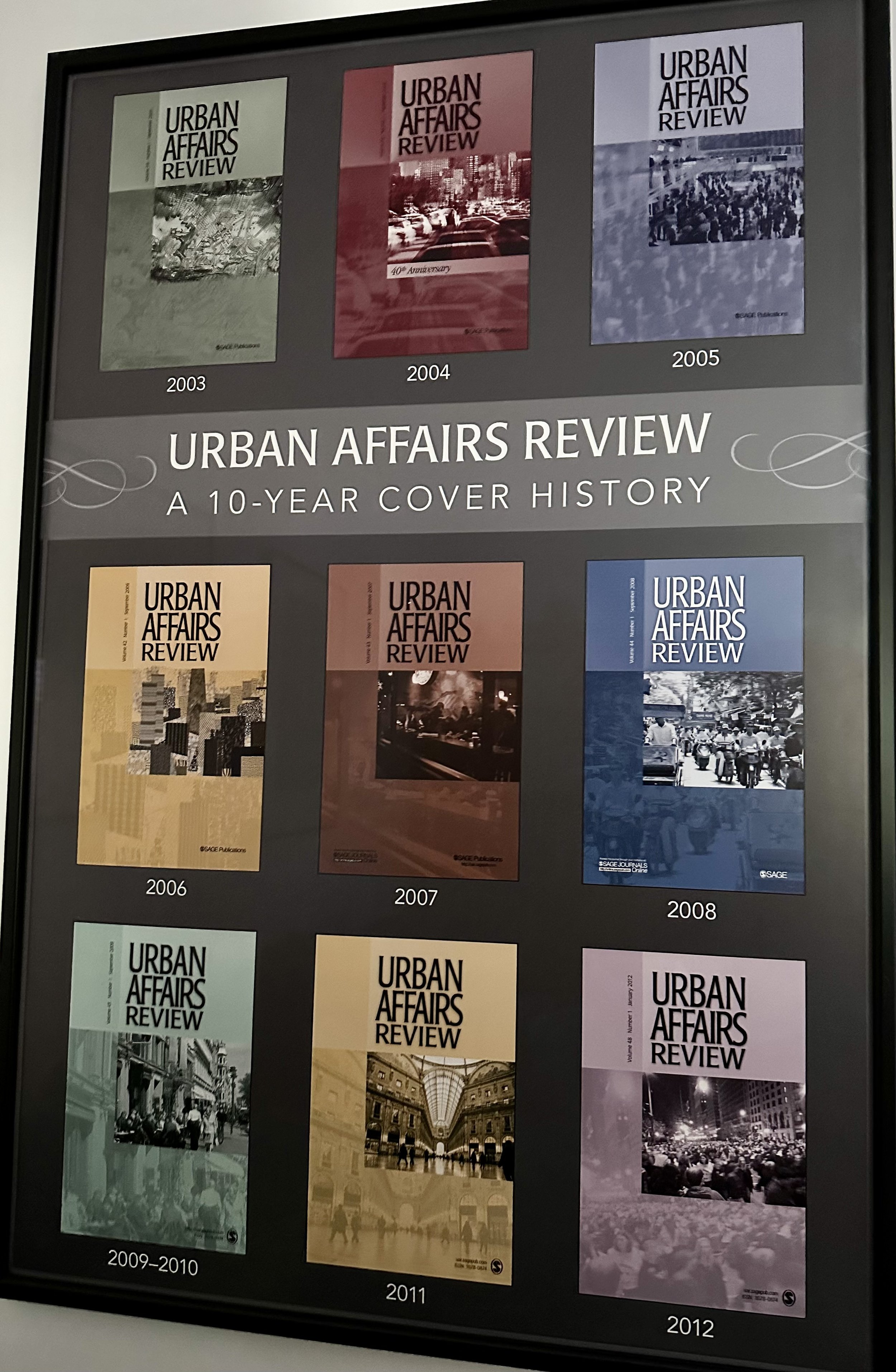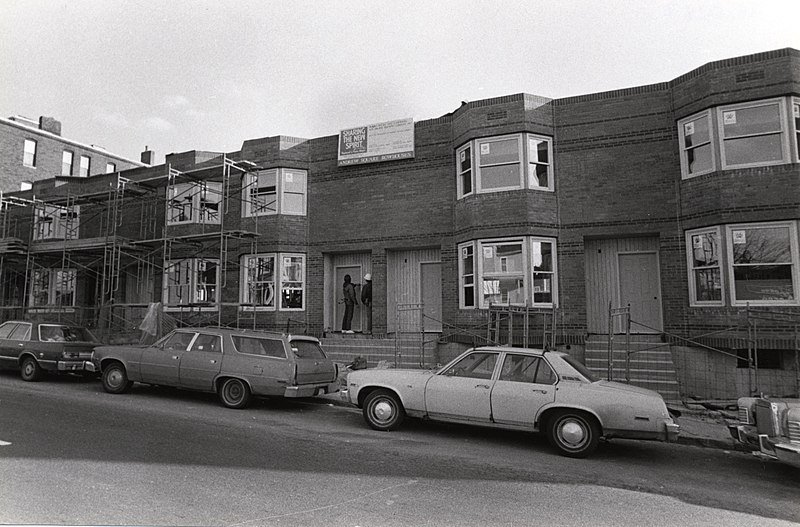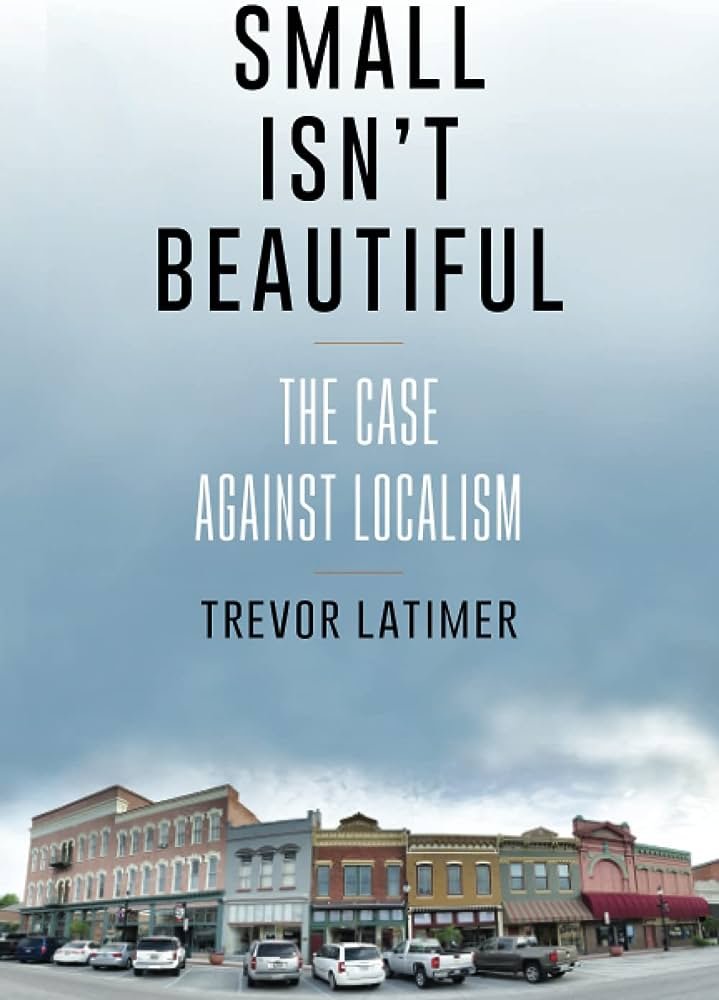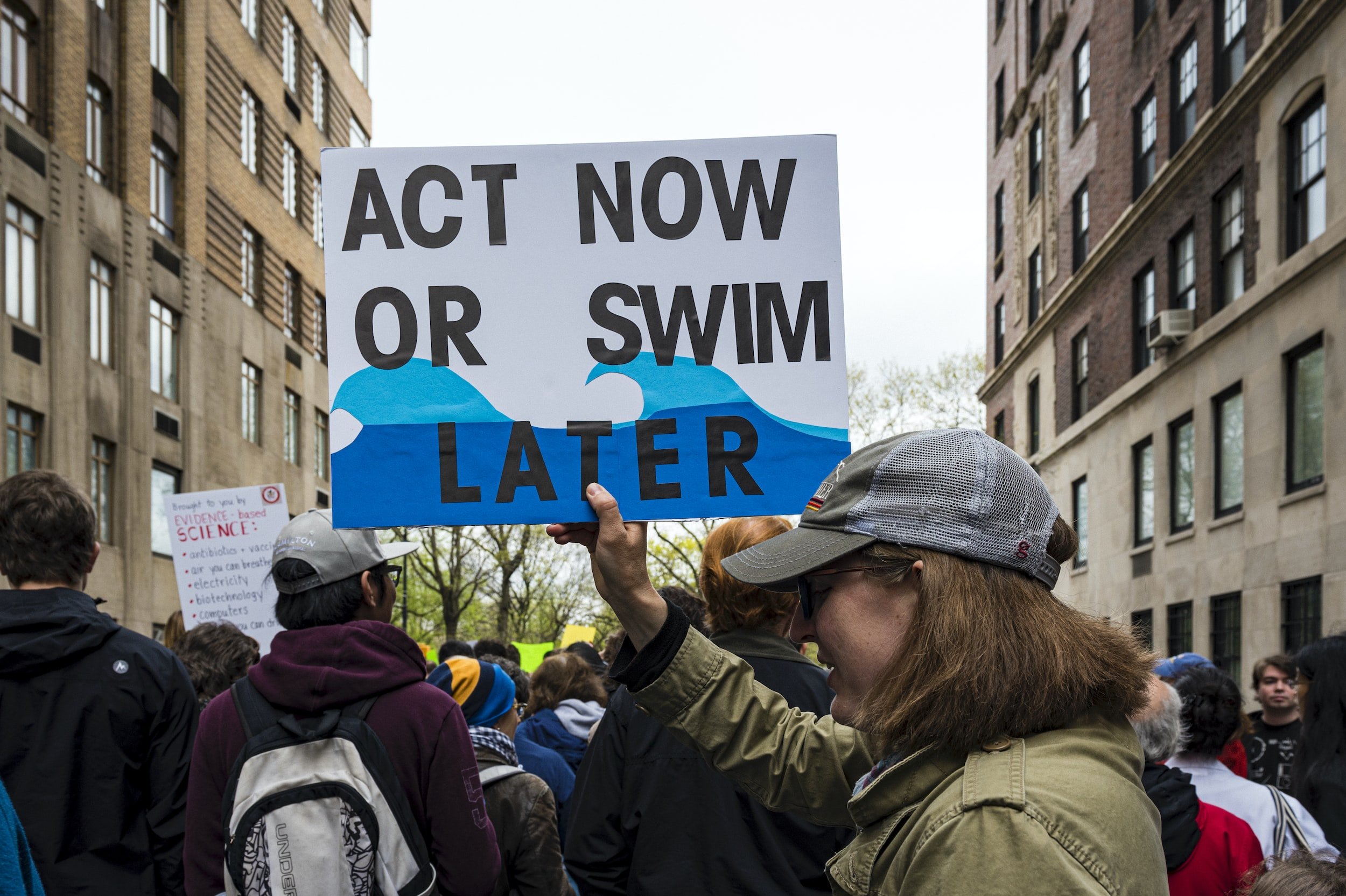
60.6
Issue 6 of our anniversary volume features an introductory essay by managing editors Christina Greer and Tim Weaver. Featuring Zoltan Hajnal and Jessica Trounstine's 2013 article, “What Underlies Urban Politics? Race, Class, Ideology, Partisanship, and the Urban Vote,” along with a new essay by Hajnal and Trounstine reflecting on their influential work today.

60.5
Issue 5 of our anniversary volume features an introductory essay by managing editors Maureen Donaghy (Rutgers University-Camden) and Yue Zhang (University of Illinois-Chicago). Featuring Jefferey Sellers’ 2005 article, “Re-placing the Nation,” along with a recent essay by Dr. Sellers on urban comparative politics. We’re also pleased to share a wonderful essay by former UAR editors Susan Clarke and Michael Pagano that reflects on their long tenure as editors and the changes in the field.

Compact City and Mayoral Entrepreneurship
The “compact city” is one of the key responses of urban policy for tackling the pressing challenges that cities are facing, such as environmental sustainability, economic viability, and social cohesion. Nonetheless, understanding Japan's compact city policies requires considering the historical trajectories of past events and decisions made by policymakers.

60.4
Issue 4 of our anniversary volume features an introductory essay by managing editors Maureen Donaghy (Rutgers University-Camden) and Yue Zhang (University of Illinois-Chicago). We revisit Larry Bennett’s “Harold Washington and the Black Urban Regime,” which was published in Urban Affairs Review in 1993.

60.3
Issue 3 of our anniversary volume features an introductory essay by managing editors Christina Greer (Fordham University) and Tim Weaver (University at Albany). We revisit Elinor Ostrom’s “The Social Stratification-Government Inequality Thesis Explored,” which was published in Urban Affairs Review in 1983.

The Price of Losing Autonomy
Amalgamations have gained popularity worldwide as important strategies for enhancing administrative efficiency and addressing a variety of governance challenges, including fiscal constraints, demographic shrinkage, and fragmented urban governance. This trend has also spurred a surge in empirical research to assess the actual impacts of such territorial reforms across diverse political and social contexts. One noticeable pattern that emerges from the literature is that small and politically marginalized units are often underserved after amalgamations, as a result of their diminished political importance in the post-amalgamated jurisdictions.

60.2
Issue 2 of our anniversary volume features an introductory essay by managing editors Richardson Dilworth (Drexel University) and Mara Sidney (Rutgers University-Newark). We revisit Michael Lipsky’s “Street-Level Bureaucracy and the Analysis of Urban Reform” published in Urban Affairs Quarterly in 1971.

Creating Local “Citizen’s Governance Spaces” in Austerity Contexts
In many cities, and particularly in a context of neoliberal austerity and governmental withdrawal from public action, citizens act upon their urban environment. If these initiatives could be presented as spaces of resistance to neoliberalism, or as political acts of reclaiming the city, these emergent practices are neither a manifestation of state retrenchment nor its outright rejection. Individuals and loosely organized collectives involved in such initiatives develop and are embedded in complex and multidimensional relationships with local institutions and third sector organizations. Montreal is a particularly interesting case to observe these practices. Bringing citizens’ initiatives and so-called social innovations to the core of public action have been among the neoliberal policy orientations pursued by some of Montreal’s boroughs and third sector organizations, increasingly relying on volunteers and private citizens to intervene in the public sphere, especially in the areas of urban gardening and food recuperation.

What Court Mergers Teach Us About Cutting Government Costs
Across the world, consolidation is a common way of reforming local government. Advocates argue that combining two or more local governments enables the new, larger government to reduce spending by providing services more efficiently. One way that mergers achieve this is by spreading large capital costs over a larger population: instead of two small towns operating their own trash removal service or two small school districts running two administrative systems, the larger local government can operate one. It is also argued that mergers can reduce spending through the elimination of redundant departments, services, and staff.

With a little help from my friends?
Cities around the world face declining revenues and increasing demands for public services by residents and commuters. Large metropolises have been navigating times of deficit for a long time. The pandemic only intensified these dynamics, particularly in big cities. Cross-boundary dynamics, such as contracting out or joint production of services, are well-known practices intended to (a) lower the costs of services, (b) increase service quality, and/or (c) enable access to certain services.

From the Local to the Hyperlocal
Mark Chou (Austrialian Catholic University) reviews “Small Isn’t Beautiful: The Case Against Localism” and “Hyperlocal: Place Governance in a Fragmented World” in this book review essay.

“Defund” or “Refund” the Police?
In June of 2020, like many of you, we watched as George Floyd died at the hands of the Minneapolis police officer Derek Chauvin. We also watched as countless residents of cities took to the streets to protest this injustice. At the same time, the coronavirus pandemic meant that most city council meetings were being held via Zoom. In meeting after meeting, we observed calls to defund the police or move funds to other departments. While popular media reported that most departments did not defund their police budgets, the narrative and the rhetoric persisted. We wondered: to what extent might local governments have reduced their police budgets in the aftermath of the protests?

Walking the Talk
Why do some municipalities adopt ambitious climate action plans and others do not? How can we encourage more cities to be ambitious? The Intergovernmental Panel on Climate Change (IPCC) has warned that CO2 emissions must reach net zero by 2050 to prevent the most devastating consequences of global climate change. Cities consume more than two-third of the world’s energy, emit more than seventy percent of the global CO2 emissions, and contain 55% of the world’s population, so their efforts will be critical to our ability to prevent catastrophic combat climate change.

Characterizing the Non-linear Relationship Between Capacity and Collaboration in Urban Energy and Climate Initiatives
In the wake of the United States’ initiation of its formal withdrawal from the Paris Climate Agreement, the continued commitment of city governments is serving, for some, as a beacon of hope. However, although there are many examples of cities achieving significant reductions in their greenhouse gas emissions, individual local governments cannot generate the necessary scale of changes alone. The emphasis that both scholarly and practitioner-focused studies place on understanding the dynamics that facilitate successful inter-jurisdictional and inter-organizational collaborations around local climate and energy objectives reflect this recognition.

The Urban Turn in Comparative Politics
In this post, UAR Co-Editor Yue Zhang shares her article that was originally published in the Spring 2020 newsletter of The Organized Section In Comparative Politics of the American Political Science Association (APSA).

Experimenting With Public Engagement Platforms in Local Government
Citizen consultation and participation in decision making at the local level has a long history in the U.S., rooted in traditions such as the New England town meeting. In recent years, however, new digital platforms have emerged to facilitate online town hall meetings or to gather collective input on policy issues in new ways. Who are the governments experimenting with these participatory innovations? We explore this question using US national survey data that examines use of these platforms, goals and activities for civic engagement, and practices for local innovation.

Exploitative Revenues, Law Enforcement, and the Quality of Government Service
One aspect of recent criticism of police departments has been centered on the aggressive imposition and collection of fees, fines, and civilly forfeited assets. The Department of Justice’s (DOJ) investigation of the Ferguson, Missouri police department, for example, revealed that a key driver of the behavior of the Ferguson police was the desire to generate municipal revenue by issuing traffic tickets and imposing fees. More broadly, a growing body of evidence indicates that local police departments are being used to provide revenue for municipalities by imposing and collecting fees, fines, and asset forfeitures.

Intermunicipal Cooperation in Metropolitan Regions in Brazil and Mexico
Metropolises, not states, are the ones capable of saving the world from its most pernicious problems. This common theme is frequently present in the rhetoric of multi-national organizations echoed in newspapers’ headlines. Clearly, cities and metropolitan regions have advantages over other levels of governments in terms of their proximity and policy tools to face problems such as water shortage, waste management, human security, housing, urban mobility, among others. For most countries, especially in the developing world, these topics present formidable challenges into reaching sustainable models of livelihood due to the lack of intermunicipal cooperation. The real question is whether metropolitan regions are actually capable of cooperating to address these and other problems independent to the surrounding institutional context.

Governing Without Government
In 2018, the City of Detroit kicked off fundraising for the Strategic Neighborhood Fund, an effort to attract private funds to support infrastructure improvements in city neighborhoods. This initiative came five years after Detroit went through the largest municipal bankruptcy in U.S. history. Based on major media accounts, this bankruptcy was a rousing success, ushering in the rebirth of a great American city. As a feature article in National Geographic put it: “Tough, real, and cheap, Detroit, with the nation’s largest municipal bankruptcy behind it, is suddenly attractive to investors, innovators, and would-be fixers, especially young adventurers.” The credit ratings agencies seemed to agree; by February 2019 the city’s bond rating had made considerable progress towards regaining investment grade status.

Disasters and Economic Shocks Virtual Issue
In advance of the research that will soon be coming forth about the varied impacts of COVID-19 on our lives, UAR Co-Editor Peter Burns has identified several UAR articles that engage issues he thinks will receive a lot of attention from urban scholars. This “virtual” issue on Disasters and Economic Shocks highlights previously published articles on emergency management networks, inequities in public services, public health, immigration policy, and city responses to economic shocks.